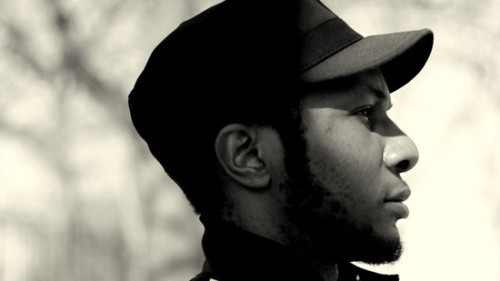What you should be reading
I wasn't pleased with the selection of short stories listed for the Caine Prize this year. That list made African writing look bad. Truth be told, the problem associated with such collections is hardly applicable to the Caine committee alone. Lists like that makes it seem like African writing remains subpar, and is simply being given a charitable helping hand by the largesse of nice prize-giving people.
Happily, the list below, including some of the most absorbing books of 2011, will convince you otherwise – read them all if you can (and please add those you'd recommend in the comments area below). I received several of the books for birthday presents/random presents from my partner, and read them on the journeys we make between New York City (where he works) and upstate New York (where I work). On those long train rides along the Hudson River–flowering trees, the 'V's of returning Canada geese, and kayakers in springtime to ice floes and 19th century industrialists' castles, revealed among trees shorn of foliage during mid winter – there's been more than one instance that someone sitting near us asked to have a look at the book I was reading. And surprise: their pleasure, from the first pages, was so obvious that I let these random strangers keep the book for the journey, re-learning what they know about African intellect, African poetics, African multiplicity in thought, ways of being, and life experience.
Open City by Teju Cole
I taught this book this fall semester to a class of seniors, fearing that the quiet introspection of Cole's narrator, Julius, wouldn't catch my students' interest. I needn't have worried: the hottest woman in class, charged with introducing the book, declared, "I feel like this is a guy you want to be friends with." (Dreamy look included.) I'll save a brainy analysis for the spring, when AIAC returns.
One Day I Will Write About This Place by Binyavanga Wainaina
This one. I was laughing so hard as I read the opening chapters that I was compelled to read a few paragraphs aloud to my partner, so he could share the fun. There's so much here that reminded me of my own journey from childhood to maturity – watching endless reruns of Six Million Dollar Man, the forced nationalism of the yearly Independence Day celebrations, the mindless routines of boarding school, never-ending sibling tensions, and the stultifying fear that one will never make as good as one's parents banked on – that these passages elicited invocations that no American memoir has ever conjured up for me. Mr. Wainaina's book was one I gave up to a fellow passenger, with an added introduction to Wangechi Mutu's art, which graces the cover of the hardback.
Memoirs of a Porcupine by Alain Mabanckou
Originally published in French in 2006 and only translated into English this year, this is crime fiction with an almost caricatured level of style, rhythm and timing worthy of a stand-up comic, and harrowing twists. No full-stops in the entire book. No wonder the officialese in the French Republic are falling all over themselves trying to incorporate "Mr. Mabancool" into its own stultified nationalism.
Half-Blood Blues by Esi Edugyan
Born in Canada to Ghanaian immigrant parents, Esi Edugyan was a 2011 Man Booker Prize finalist. She won the 2011 Scotiabank Giller Prize, Canada's biggest literary prize, beating a formidable shortlist, which included Michael Ondaatje. The narrator, Sid Griffiths, is an African-American jazz musician; he travels to Germany in 1952 to attend the premiere of a documentary about Hieronymus Falk, a black trumpet player and jazz legend, who was forbidden to play by the Nazis and subsequently arrested and 'disappeared' by the Nazis. Griffiths explores the remnants of that legacy – not only the life-threatening nature of being a black musician in Hitler's Germany, but what it is like to be in a place with such memory.
What the Day Owes the Night by Yasmina Khadra
Khadra's novel about Algeria chronicles rifts between lovers, family and friends, and loyalty to nation. Younes, the narrator, is a heartbreaker – not necessarily in the traditional Romantic sense, but in his meandering inability to make decisions — readers will align themselves so much with Younes that their hearts will drop whenever he makes a poor decision. The story is a chronicle of the legacy inherited from of a family and a social world that disables individual strength, for the sake of social unity (which then means that everyone is unhappily together).
Anatomy of a Disappearance by Hisham Matar
In the Cairo apartment Nuri shares with his father, he remains inconsolable, filled with the emptiness that his mother's unexplained death leaves behind. Nuri seems to dissipate into that explosive void, until he meets Mona: her yellow swimsuit dazzling and absorbing as the sun. Needless to say, some Oedipal complications follow.
Oil on Water by Helon Habila
Habila's strength is in that he is able to raise broader political and societal concerns, guiding his readers using different narrative strands that weave together a larger story about the rich, beautiful, yet fragile environment of the Delta, as it is being devastated by the greed for oil and money.
The Granta Book of the African Short Story, edited by Helon Habila
This new anthology proves that collections of short stories from Africa don't have to be a charitable overreach. Ambitious, wide-ranging, and rich collection of stories by twenty-six writers from nineteen countries all across Africa – stories written in English or translated from French, Portuguese or Arabic. Helon Habila's own writing is a deep pleasure to read, so it's no wonder that his list of choices are reflective of linguistic, aesthetic and lyrical ability, rather than on polemics or ability to "represent" Africa according to preconceived notions. A treasure to have at your bedside, especially if you're an insomniac.

Sean Jacobs's Blog
- Sean Jacobs's profile
- 4 followers




